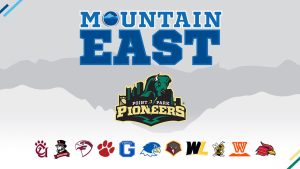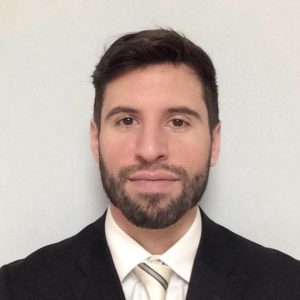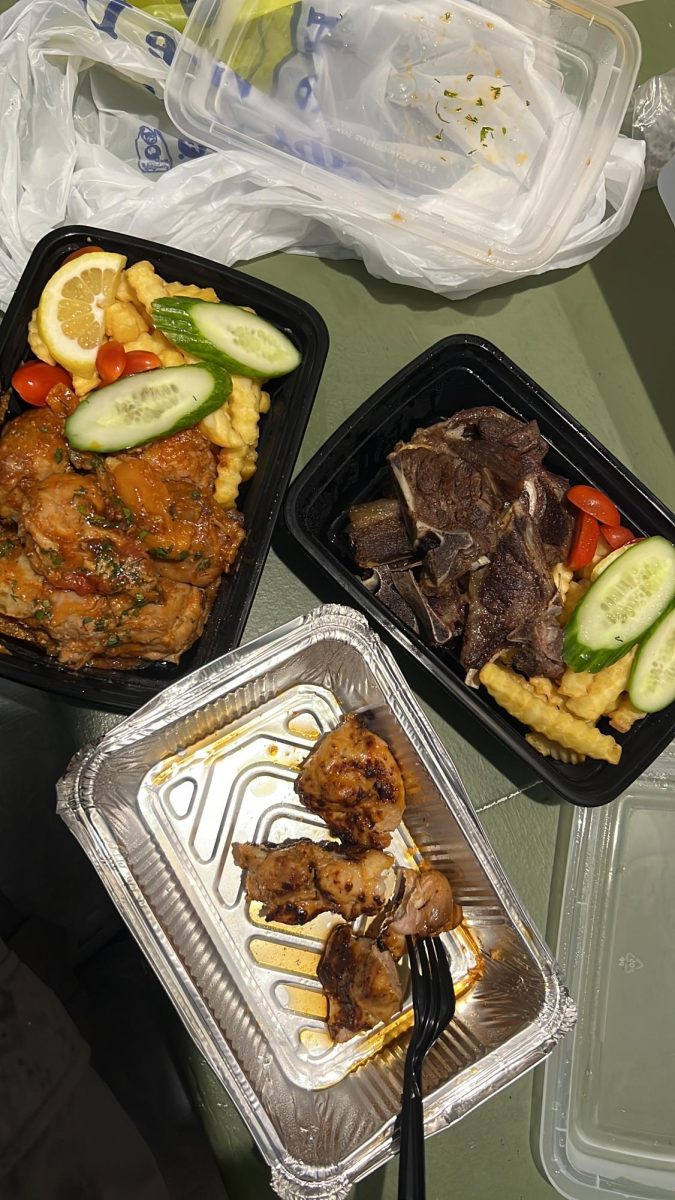Like any normal 13-year-old, Alicia Kozakiewicz enjoyed talking to people in Internet chat rooms. Little did she know that a man she would meet in one of these chat rooms would make her the victim of a child abduction case that would change the focus of her life forever.Kozakiewicz, now 21 years old, entered an online relationship with Scott Tyree of Herndon, Va., in early 2002 when she was 13 years old. After several months of “grooming,” a term used by police that means brainwashing based on the building of relationships between predator and victim, Kozakiewicz agreed to meet him in person on the first of the year.“He was always there for me no matter what, any time of day or night. And he was always on my side no matter what. He made me feel beautiful,” Kosakiewicz, a senior psychology major at Point Park University, said. “I never planned on going anywhere. I left the door ajar. Maybe I just snuck outside to see if he was really going to show up.”
When he did, Tyree abducted Kozakiewicz, driving her to Virginia where she spent the following three days chained in Tyree’s bedroom. While there, he raped and sexually abused her until she was rescued by the FBI on the fourth day – the day Kozakiewicz believes Tyree had planned to kill her.
“The second I saw him, I knew that I was in a lot of trouble,” she said. “He squeezed my hand so tightly, I thought it was broken. He was saying things like, ‘be good, the trunk’s cleaned out for you,’ and threats like that. So I realized that this guy is literally 400 lbs to my 80 lbs, what can I really do? I can’t jump out of a moving vehicle. I just need to sit here, keep quiet and do whatever I can to survive.”Because of her amazing and rare survival story, Kozakiewicz has since begun the Alicia Project, a community service-oriented organization focused on educating children and parents alike of the dangers involved with the Internet and actions that can be taken to prevent abduction by online predators.
Following her rescue from Tyree, Kozakiewicz’s story was thrust into the public eye, receiving both negative and positive press from many media outlets.
“I was one of the first cases that this had happened,” she said. “In order to put self-defense mechanisms up, I had to be a bad child or my parents were bad parents…people really blamed us.”
However, because of the constant media frenzy surrounding her, Kozakiewicz felt it was natural to start speaking out about her experience. She started the Alicia Project when she was 15, just two years after being rescued from Tyree’s home. Through the Project, she speaks to schools to warn against the dangers of the Internet.
“I started trying to speak out when I was 15, which didn’t work out very well,” Kozakiewicz said. “I’m an extremely shy person. There would be times where I would literally pass out after giving a speech.”
“It was difficult to watch her. As a parent, you want to keep her from hurting herself,” Mary Kozakiewicz, Alicia’s mother, said. “But Alicia was doing something of value. Only she could reach them. When a victim comes in and testifies, it makes it real…[it makes you] consider what you’re doing.”
After taking a brief break in high school to complete her SATs, Kozakiewicz again began to pursue the Project in college. Upon beginning classes at Point Park, Pat Moran, former director of the universities community outreach program and current director of Focus On Renewal (F.O.R.), a community aid program in McKees Rocks, came to speak in Kozakiewicz’s University Experience course about the outreach program, and something in Kozakiewicz “clicked,” she said. She approached Moran after class with ideas of merging their two projects.
“Alicia came to me wanting help reaching a younger audience,” Moran said. “I helped her set up talks in elementary schools and get a bigger audience to tell her story.”
Kozakiewicz tells her story of survival in schools in order to make children understand the dangers of sharing private information about themselves on the Internet.
“Her approach was educational, not shock value,” Moran said of Kozakiewicz. “Her story is shocking, but it is meant as a preventative measure, which is privy to anyone. Kids are online earlier and earlier. Younger is becoming more dangerous.”
At these talks, Kozakiewicz also shares tips on how to prevent becoming a victim of Internet predators, such as making your screen name gender neutral.
“Your screen name is who you are online. It’s your identity,” Kozakiewicz said. “At one point in my program, a girl gave me her screen name. She was 9 years old, and it was hotgirl69XXO, and she probably had no idea what that meant. So, I always tell the kids that this girl goes into a chat room, who is going to message her? And the kids were like ‘pedophiles, perverts,’ and that’s possible, but definitely someone who wants to talk about sex. And can you blame them because that’s exactly what her screen name says.”
While Kozakiewicz speaks to the children in the schools, her mother, Mary, often speaks to the parents of those children.
“When something like this happens, you don’t want it to happen to anyone else,” Mary Kozakiewicz said. “It’s important for others, to help them survive.”
Mary Kozakiewicz is part of the nation-wide Surviving Parents Coalition, which is a group of parents of children who have been predatorily abducted or sexually abused. Mary Kozakiewicz and the other members of the Coalition comprise a “cohesive force across the U.S.” against Internet abuse of children.
“Schools have fire drills as often as once a month,” she said. “But there is a small chance there will ever be a fire. But a child comes in contact with a predator every day.”
Both Mary and Alicia Kozakiewicz believe prevention is the key to stopping child Internet abuse crimes.
“I had one gentleman come up – he was about 14 or 15 – and he said, ‘I think I might be a predator. Some of the things I look at online, I just want to break my arm,’” Alicia Kozakiewicz said. “And I was so floored by that. The fact that he came forward, maybe he won’t become a predator. Maybe he would have been, but since someone came in and spoke to him, maybe he won’t be now.”
In addition to speaking at schools across the nation, traveling as far as Florida and Oregon, Alicia Kozakiewicz has appealed to several courts and congresses on the passing of Alicia’s Law, the stateside version of the Child Online Protection Act of 2008, for which she spoke in front of Congress. However, according to Kozakiewicz, only 2 percent of the special task forces designed to enforce the act are being funded to solve cases like Kozakiewicz’s. Alicia’s Law, if passed, would provide funding for these task forces.
A version of Alicia’s Law has already been passed in Virginia, and Kozakiewicz will be appealing to the National State Legislature in Kentucky this summer for its passing in all 50 states.
“Legislation, education, communication with your kids,” Kozakiewicz said. “It has to be all sides. The parents have to know what’s happening, the kids have to know what’s happening. The police have to know what’s happening and have enough money to change things.”
Kozakiewicz has additionally appeared on Oprah, Fox and Friends and several other media outlets to promote Alicia’s Law and safe Internet practices. She has been featured in videos for PA Cyber Schools, a national lesson program called Internet Safety 101 and wrote a book with five fellow abduction victims called “You’re Not Alone: The Journey from Abduction to Empowerment.”
Additionally, for her work with the Alicia Project, Kozakiewicz recently won the Jefferson Award in Washington, D.C. for community service.
Following graduation next semester, she plans to attend graduate school to get her Ph.D. in psychology and hopes to someday work with the FBI’s child exploitation unit. She also has plans to open her own private practice in the future, specializing in helping children who have been abused or victims of Internet lure.
But for now, she will continue speaking to schools and other children organizations through the Alicia Project about preventative measures regarding Internet safety.
“I had a little boy ask me one time, ‘Ms. Alicia, who can change the Internet, who can fix this?’” Kozakiewicz said. “And I didn’t know how to answer that at first. I was thinking Google, Microsoft, and then I was like oh wait, it’s you. It’s you who changes the Internet. It’s what you open, and, more importantly, what you refuse to open that changes what’s there today and tomorrow.”
At these talks, Kozakiewicz also shares tips on how to prevent becoming a victim of Internet predators, such as making your screen name gender neutral.”Your screen name is who you are online. It’s your identity,” Kozakiewicz said. “At one point in my program, a girl gave me her screen name. She was 9 years old, and it was hotgirl69XXO, and she probably had no idea what that meant. So, I always tell the kids that this girl goes into a chat room, who is going to message her? And the kids were like ‘pedophiles, perverts,’ and that’s possible, but definitely someone who wants to talk about sex. And can you blame them because that’s exactly what her screen name says.”While Kozakiewicz speaks to the children in the schools, her mother, Mary, often speaks to the parents of those children.”When something like this happens, you don’t want it to happen to anyone else,” Mary Kozakiewicz said. “It’s important for others, to help them survive.”Mary Kozakiewicz is part of the nation-wide Surviving Parents Coalition, which is a group of parents of children who have been predatorily abducted or sexually abused. Mary Kozakiewicz and the other members of the Coalition comprise a “cohesive force across the U.S.” against Internet abuse of children.”Schools have fire drills as often as once a month,” she said. “But there is a small chance there will ever be a fire. But a child comes in contact with a predator every day.”Both Mary and Alicia Kozakiewicz believe prevention is the key to stopping child Internet abuse crimes.”I had one gentleman come up – he was about 14 or 15 – and he said, ‘I think I might be a predator. Some of the things I look at online, I just want to break my arm,'” Alicia Kozakiewicz said. “And I was so floored by that. The fact that he came forward, maybe he won’t become a predator. Maybe he would have been, but since someone came in and spoke to him, maybe he won’t be now.”In addition to speaking at schools across the nation, traveling as far as Florida and Oregon, Alicia Kozakiewicz has appealed to several courts and congresses on the passing of Alicia’s Law, the stateside version of the Child Online Protection Act of 2008, for which she spoke in front of Congress. However, according to Kozakiewicz, only 2 percent of the special task forces designed to enforce the act are being funded to solve cases like Kozakiewicz’s. Alicia’s Law, if passed, would provide funding for these task forces.A version of Alicia’s Law has already been passed in Virginia, and Kozakiewicz will be appealing to the National State Legislature in Kentucky this summer for its passing in all 50 states.”Legislation, education, communication with your kids,” Kozakiewicz said. “It has to be all sides. The parents have to know what’s happening, the kids have to know what’s happening. The police have to know what’s happening and have enough money to change things.”Kozakiewicz has additionally appeared on Oprah, Fox and Friends and several other media outlets to promote Alicia’s Law and safe Internet practices. She has been featured in videos for PA Cyber Schools, a national lesson program called Internet Safety 101 and wrote a book with five fellow abduction victims called “You’re Not Alone: The Journey from Abduction to Empowerment.”Additionally, for her work with the Alicia Project, Kozakiewicz recently won the Jefferson Award in Washington, D.C. for community service.Following graduation next semester, she plans to attend graduate school to get her Ph.D. in psychology and hopes to someday work with the FBI’s child exploitation unit. She also has plans to open her own private practice in the future, specializing in helping children who have been abused or victims of Internet lure.But for now, she will continue speaking to schools and other children organizations through the Alicia Project about preventative measures regarding Internet safety.”I had a little boy ask me one time, ‘Ms. Alicia, who can change the Internet, who can fix this?'” Kozakiewicz said. “And I didn’t know how to answer that at first. I was thinking Google, Microsoft, and then I was like oh wait, it’s you. It’s you who changes the Internet. It’s what you open, and, more importantly, what you refuse to open that changes what’s there today and tomorrow.”








